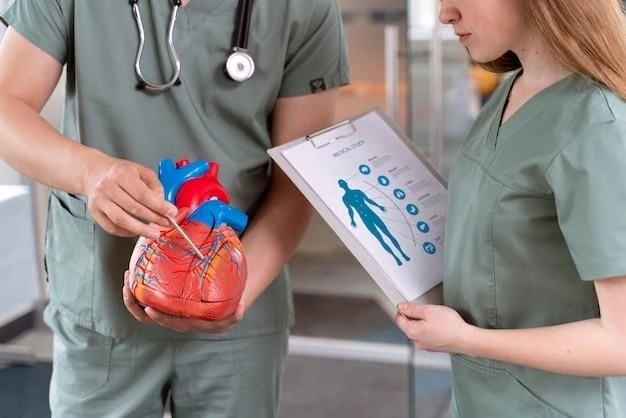Understanding Cardiomyopathy⁚ Causes and Treatments
Causes of Cardiomyopathy
Cardiomyopathy can be caused by various factors, including high blood pressure, heart tissue damage, viral infections, excessive alcohol consumption, and certain genetic conditions․ It’s crucial to manage these risk factors to prevent or slow down the progression of cardiomyopathy․ Consult with your healthcare provider for personalized advice and treatment options․
Treatments for Cardiomyopathy
Effective treatments for cardiomyopathy may include medications to manage symptoms, lifestyle changes such as a heart-healthy diet and regular exercise, and in some cases, surgical procedures like heart transplant or implantation of a defibrillator․ It’s essential to work closely with your medical team to develop a comprehensive treatment plan tailored to your specific condition․ Follow their guidance and attend regular follow-up appointments for optimal management of cardiomyopathy․
Hypogonadism in Men⁚ Symptoms and Management
Symptoms of Hypogonadism
Symptoms of hypogonadism in men may include decreased libido, erectile dysfunction, fatigue, infertility, decreased muscle mass, and mood changes․ If you experience these symptoms, consult with a healthcare provider for proper evaluation and management․ Treatment options may include hormone replacement therapy, lifestyle modifications, and addressing underlying conditions contributing to hypogonadism․ Prioritize your health and well-being by seeking professional medical advice․
Management of Hypogonadism
Proper management of hypogonadism involves working with healthcare professionals to determine the underlying cause and develop a treatment plan․ This may include hormone replacement therapy, lifestyle modifications like regular exercise and a balanced diet, and addressing any related health conditions․ Stay informed about your condition, adhere to prescribed treatments, and attend follow-up appointments to monitor progress and adjust management strategies as needed․ Prioritize your overall health and well-being by actively managing hypogonadism under medical supervision․
Metabolic Anomalies⁚ Types and Health Implications
Types of Metabolic Anomalies
Metabolic anomalies encompass conditions like diabetes, obesity, metabolic syndrome, and lipid disorders․ These anomalies can impact overall health and increase the risk of cardiovascular diseases, stroke, and other complications․ Managing these conditions through lifestyle changes, medication, and regular monitoring is crucial․ Consult healthcare providers for personalized guidance on managing metabolic anomalies and reducing associated health risks․ Prioritize healthy habits to support your metabolic health and well-being․
Health Implications of Metabolic Anomalies
Metabolic anomalies, such as diabetes and obesity, can lead to serious health consequences like heart disease, stroke, and kidney damage․ Managing these anomalies through a healthy lifestyle, including a balanced diet and regular exercise, is essential․ Work closely with healthcare professionals to monitor and address metabolic issues to reduce the risk of associated complications․ Prioritize preventive measures and early intervention to safeguard your overall health and well-being․
Cardiomyopathy and Exercise⁚ Guidelines for Patients
Exercise Guidelines for Cardiomyopathy Patients
Cardiomyopathy patients should engage in moderate aerobic exercise like walking or cycling, under medical supervision․ Avoid high-intensity workouts and consult your healthcare provider before starting any new exercise routine․ Regular physical activity can help improve heart function, stamina, and overall well-being․ Listen to your body, adhere to recommended guidelines, and discuss any concerns with your medical team to ensure safe and effective exercise participation․

Hormonal Imbalance⁚ Effects of Hypogonadism on the Body
Effects of Hypogonadism on the Body
Hypogonadism can lead to symptoms like low libido, fatigue, muscle loss, and emotional changes․ Seeking medical advice and treatment is essential to address these effects and improve overall well-being․ Hormone replacement therapy, lifestyle modifications, and close monitoring can help manage hypogonadism effectively․ Prioritize your health by discussing symptoms with a healthcare provider and following their recommendations for optimal care․
